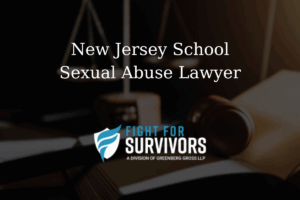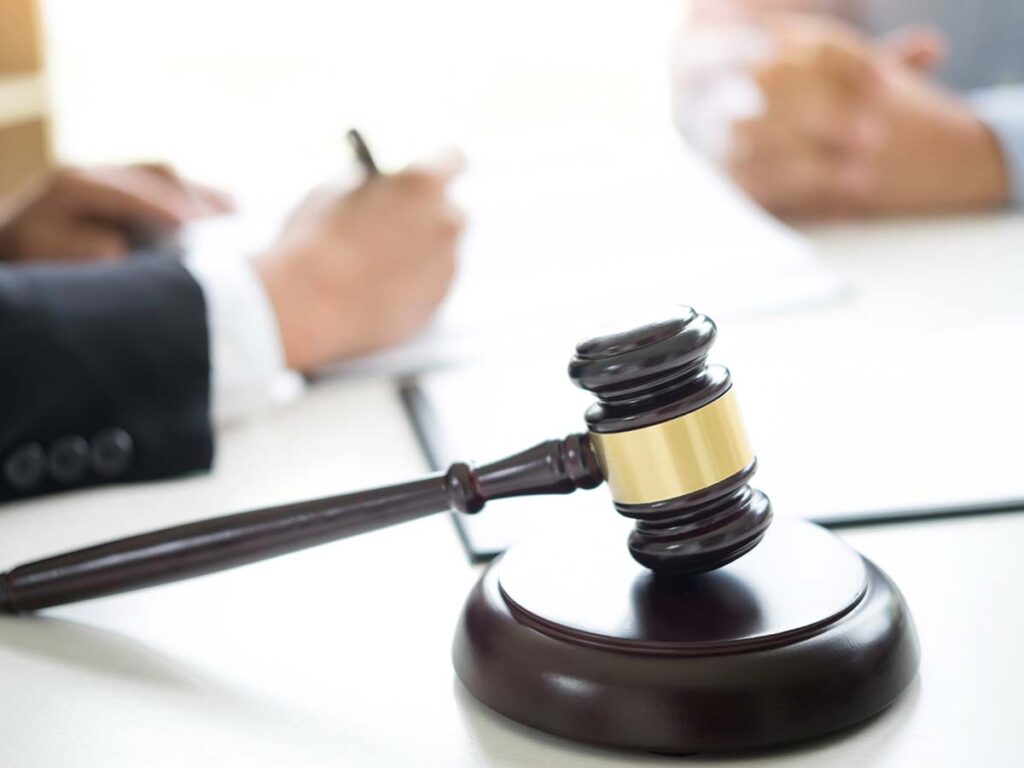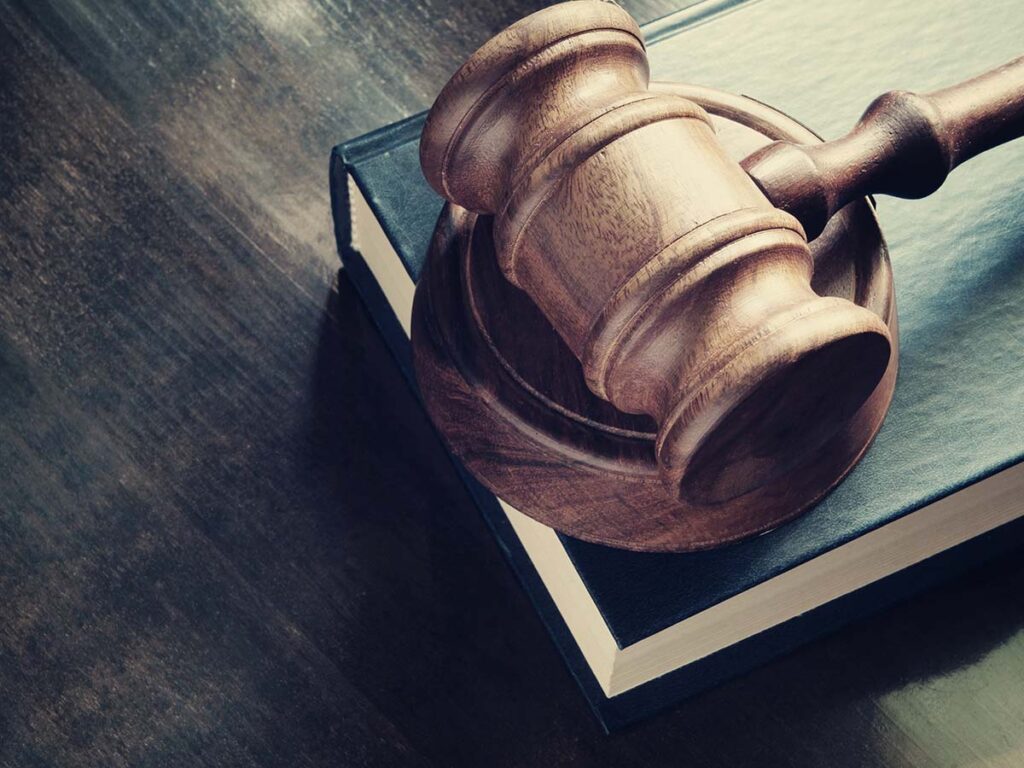
New Jersey School Sexual Abuse Lawyer
Sexual abuse in schools is one of the most devastating violations a child can experience. When the very institutions meant to protect and educate become the site of trauma, the consequences often last a lifetime. In New Jersey, survivors of child sexual abuse in schools—whether public or private—have legal options. With the help of a dedicated legal team, survivors and their families can seek justice, accountability, and financial compensation through a civil lawsuit.
Greenberg Gross LLP is committed to representing victims of child sexual abuse in New Jersey schools. Our attorneys have the experience and determination needed to handle sensitive cases with the utmost care. We stand firmly with survivors, not institutions. If you or your child was sexually abused while attending school in New Jersey, our team is here to help you pursue legal action and hold the responsible parties accountable.

Understanding the Scope of Sexual Abuse in New Jersey Schools
Child sexual abuse can occur in many environments, but schools are uniquely positioned to either prevent or enable abuse. School officials, staff members, coaches, and even volunteers can hold immense influence over children. When abusers exploit their position, the harm is compounded by the betrayal of trust. Abuse can take many forms, including sexual assault, inappropriate touching, coercive behavior, and other acts of a sexual nature. In some tragic cases, abuse may involve child pornography or threats to keep a child silent.
In both public institutions and private schools, abusers often operate for years without consequences due to institutional negligence. This may include failures to perform background checks, ignoring red flags, or covering up abuse allegations to protect the school’s reputation. When abuse occurs, schools, property owners, and supervisory bodies can be held liable for their role in enabling or ignoring the danger.
New Jersey schools have a duty to protect students from harm. When they fail, survivors have the right to file civil claims and recover compensation for the abuse they suffered. These claims are about more than financial recovery—they are about truth, healing, and justice.
Legal Options for Victims of Child Sexual Abuse
Survivors of child sexual abuse in New Jersey may pursue a civil lawsuit against the abuser and the institutions that allowed the abuse to occur. Civil sexual abuse claims differ from criminal charges. While criminal prosecution may lead to prison for the abuser, a civil case focuses on financial compensation and institutional accountability. Civil lawsuits can expose negligence and force systemic change in how schools handle abuse allegations.
In 2019, New Jersey passed a law significantly expanding the civil statute of limitations for child sexual abuse. Under the updated law, survivors have until age 55, or seven years from the date they discover the abuse caused harm—whichever is later—to file a civil claim. The 2019 law also opened a special two-year lookback window (from December 1, 2019, to November 30, 2021), during which survivors could file claims that were previously barred by the statute of limitations. While that window is now closed, current survivors may still qualify under the extended statute, depending on their age and when they became aware of the abuse’s impact.
Victims of child sexual abuse have the right to recover compensation for medical treatment, therapy, emotional distress, and other damages. In some cases, punitive damages may be awarded to punish the abuser or institution. If you are considering legal action, a confidential consultation can help you understand your rights and determine your next steps.
Filing a Civil Lawsuit Against a School or Institution
When filing a civil lawsuit for sexual abuse, timing and evidence are crucial. Survivors are encouraged to speak with a qualified attorney who understands the unique challenges of these cases. Legal representation can make a significant difference in gathering evidence, protecting privacy, and filing claims within the appropriate deadlines.
Victims of child sexual abuse may be able to file claims against public school districts, private schools, religious institutions, or individual staff members, administrators, or other responsible parties who failed to act on known risks.
Survivors are not limited to suing the direct abuser. Civil claims can also be filed against school administrators, school boards, or other entities that allowed the abuse to continue. If the abuse occurred over time, involved multiple students, or resulted from systematic failures, the case for institutional negligence becomes even stronger.
The Emotional and Legal Journey of Survivors
Experiencing sexual abuse as a child leaves deep emotional scars. Many survivors carry shame, fear, and confusion into adulthood. Some struggle with trust, healthy relationships, or mental health conditions such as anxiety, depression, or PTSD. Others suffer silently, believing their pain will never be understood or validated.
Coming forward takes extraordinary courage. But survivors do not have to face this journey alone. Legal action offers a structured, compassionate path toward healing. By speaking out and seeking justice, survivors can reclaim their voice, expose their abusers, and protect future children from harm.
At Greenberg Gross LLP, our attorneys handle these cases with discretion, care, and commitment. Every client receives legal support rooted in dignity and respect. We believe that victims of child sexual abuse deserve more than just a day in court—they deserve justice.
Why Legal Action Matters
Bringing a civil case forward is not just about compensation. It’s about telling the truth, challenging the systems that failed, and making sure no other child suffers in the same way. Many survivors who pursue justice later report a sense of closure and empowerment, knowing their story made a difference.
Legal action can result in financial compensation that helps cover therapy, medical care, lost opportunities, and other impacts of the abuse. It also forces institutions—schools, churches, or other organizations—to change their practices and implement safeguards to prevent abuse.
Even if the abuse occurred many years ago, or if criminal charges were never filed, survivors may still be eligible to file a civil case. The law in New Jersey now provides expanded access to justice for victims of child sexual abuse, regardless of when the abuse occurred.

Free and Confidential Consultation
If you or someone you love was sexually abused in a New Jersey school, now is the time to act. Our team offers a free and confidential consultation to discuss your experience and help you understand your legal rights. There is no obligation to proceed, and your privacy will always be protected.
Taking that first step can be difficult. But you are not alone. Greenberg Gross LLP is here to support you with unwavering commitment and skilled legal representation. The abuse you endured was not your fault—and justice is possible.
Frequently Asked Questions
Can I file a civil lawsuit for child sexual abuse that occurred years ago?
Yes. New Jersey law now gives child sexual abuse survivors until age 55, or seven years from the date they discovered the abuse caused harm, to file a civil claim—whichever is later. Although the special two-year revival window for expired claims closed in November 2021, many survivors still qualify under the current statute. It’s best to consult an attorney to confirm your eligibility.
Who can be held accountable in a school abuse case?
In addition to the abuser, schools, religious organizations, and other institutions can be held accountable if they failed to protect students or ignored signs of abuse.
What kind of compensation can I recover?
Survivors may be eligible for compensation covering therapy, medical treatment, emotional distress, lost opportunities, and punitive damages. Every case is unique and evaluated individually.
Do I need to file a police report to pursue a civil case?
No. A civil lawsuit is separate from a criminal investigation. You do not need to file criminal charges to bring a civil case for sexual abuse.
What if I’m not sure whether the behavior I experienced qualifies as abuse?
If you were coerced, touched inappropriately, exposed to sexual behavior, or subjected to any sexual act as a child, it may qualify as abuse. An attorney can help evaluate your case during a confidential consultation.